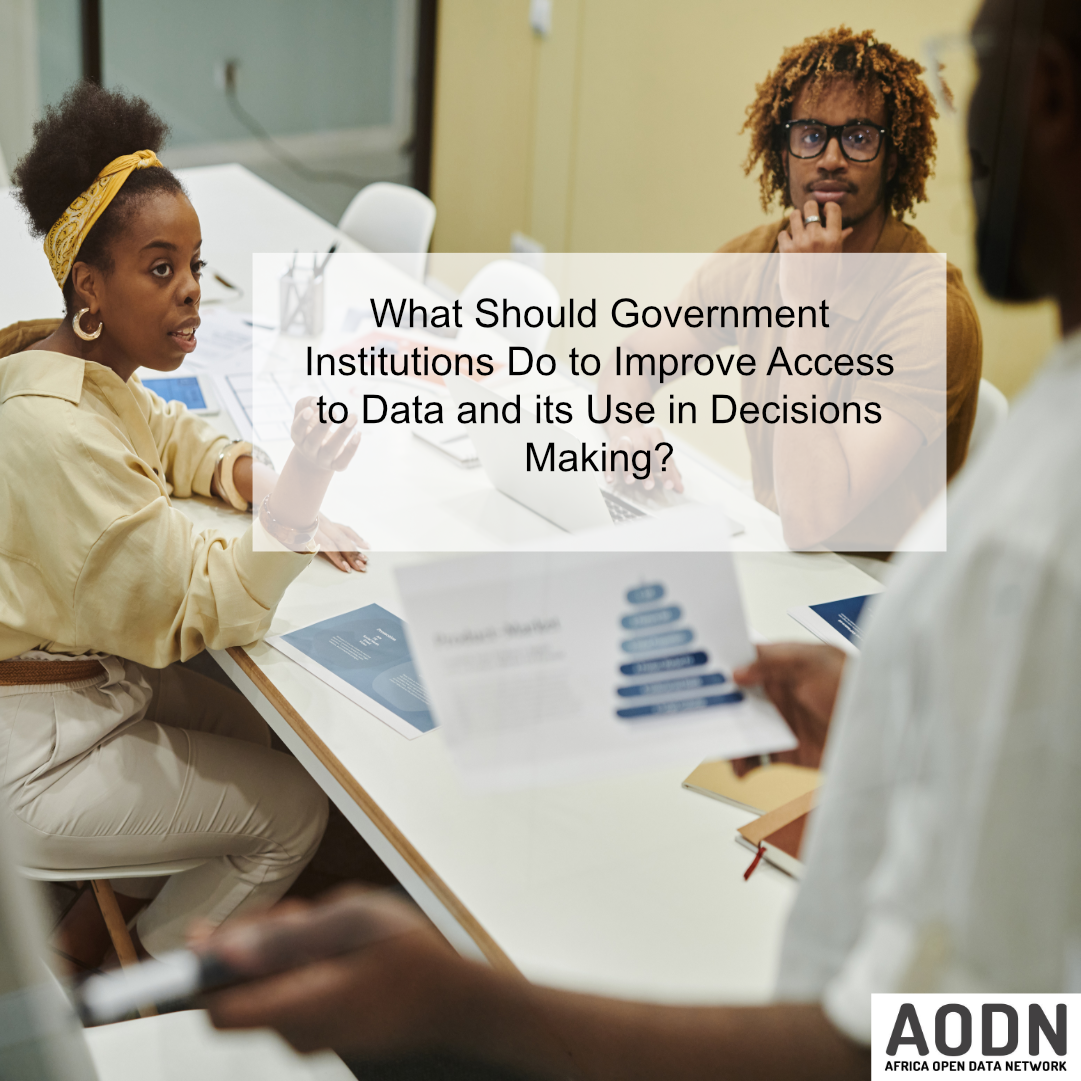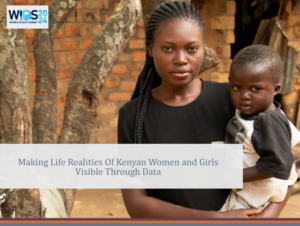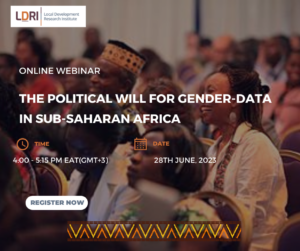![]()
What Should Government Institutions Do to Improve Access to Data and its Use in Decisions Making?

The COVID-19 pandemic has led to an escalation of public interest in the availability of related data, as everyone is keen to know the number of infections, the finances allocated in fighting the disease, the number of facilities that are able to handle the patients, and so on. This interest has led to more accountability demanded by the public from the government to be transparent. Government institutions such as ministries, parastatals, state departments, and the military make complex policy decisions that affect citizens, such as improving service delivery, allocating budget, and responding to crises. The institutions, therefore, are increasingly using insights from the large amounts of data initially collected for reporting purposes to make strategic decisions in the wake of crises such as the current COVID-19 pandemic.
In a country like Kenya; the Kenya National Bureau of Statistics, Kenya Meteorological Department, the Ministry of Lands, the Central Bank of Kenya, and the Independent Electoral and Boundaries Commission are just but a few of the many government institutions in Kenya that collect data that is used in high impact policy decisions Challenges such as lack of skilled human resource, data inaccessibility, data quality, shortage of funding, interagency cooperation, and legal issues, however, make government institutions sometimes depend on data collected by reputable non-governmental and corporate organizations operating in the country. Primarily, however, government institutions have access to data at all levels of public administration throughout such sectors as education, healthcare, sanitation, energy, agriculture, trade, national security, and labor.
Better access to this data and its utilization in policymaking has always been a matter of serious concern to government institutions as there is little room for mistakes in planning for public spending. A failure in planning due to the casual treatment of important data could lead to costly mishaps and threaten the political and socio-economic stability of the country. For example, if the government ignores data predicting famine and fails to allocate funds for the phenomena, the aftermath would be loss of lives and an exponential increase in armed conflict as communities raid each other for food and livestock. For this reason, government institutions need to ensure that whatever decisions and policies are proposed are data-driven and evidence-based.
Government institutions can enhance access to data and its utilization in decision-making in the following ways:
Build Partnerships – it is an integral part of the United Nations Agenda 2030, and also significant in achieving the goal of seamless access and intentional data utilization in decision-making. Partnership with other government institutions, non-governmental organizations, individual researchers, intergovernmental and international research organizations, and universities will no doubt enhance data access, sharing, and insightful utilization. Partnerships would also facilitate data sharing within the public sector, increase data analytic capacities across the institutions and help in the formulation of national data strategies.
Promote Public and Stakeholder Access – Even before open data initiatives such as the Kenya Open Data Portal, there were suggestions from the public that public sector data should be available to citizens at no cost. Citizen access to public sector data promotes their participation and gives citizens the opportunity to comment on or contribute to available data. The public is thus able to give recommendations that would provide helpful insight into what is important to them. This would also be enhancing the constitutional provision of public participation in public decision-making processes. Data-sharing agreements and protocols among other government agencies or stakeholders should also be established to remove barriers to the same.
Capacity development – government institutions face the challenge of inadequate staffing and skills that are not up to date with the dynamics of data. Having adequate staff who are data-literate and have skills in data analysis, availing sufficient funding and time to support data-driven initiatives, and external partnerships with universities and other stakeholders can strengthen government institutions’ success in effectively harnessing the potential of data in informing strategic decisions and policies. Training of the existing workforce will also enhance their skills in dealing with the dynamics of fast-paced big data.
Strategic Planning – government institutions should put in place strategic plans that enhance a coordinated approach to how they manage and use their data in decision-making. This will also help in the prevention of privacy violations and breaches of data. Strategic planning would include the formulation of a formal data strategy, establishing data governance structures, taking stock of systems, and performing an inventory of existing data sets.
Sustainability – as the government institutions move towards enhancing access to data and promoting its use, allocation of resources for the relevant systems and processes should be ensured. The efforts should be consistent in order to gain the political goodwill that is fundamental in streamlining processes and initiatives within government institutions. Political goodwill translates into the enactment of policies and the establishment of frameworks that would ensure the sustainability of measures that aim to improve access to data and its meaningful utilization.
Government institutions need to make data-driven decisions. The data available to government institutions should be accurate, timely, disaggregated, and widely available. Inefficiency in data use and access by the institutions would make it difficult to ascertain the effectiveness of institutional operations or whether resources are properly allocated to address the most important policies and issues.
Reference Notes
https://www.oecd-ilibrary.org/sites/baf19328-en/index.html?itemId=/content/component/baf19328-en





